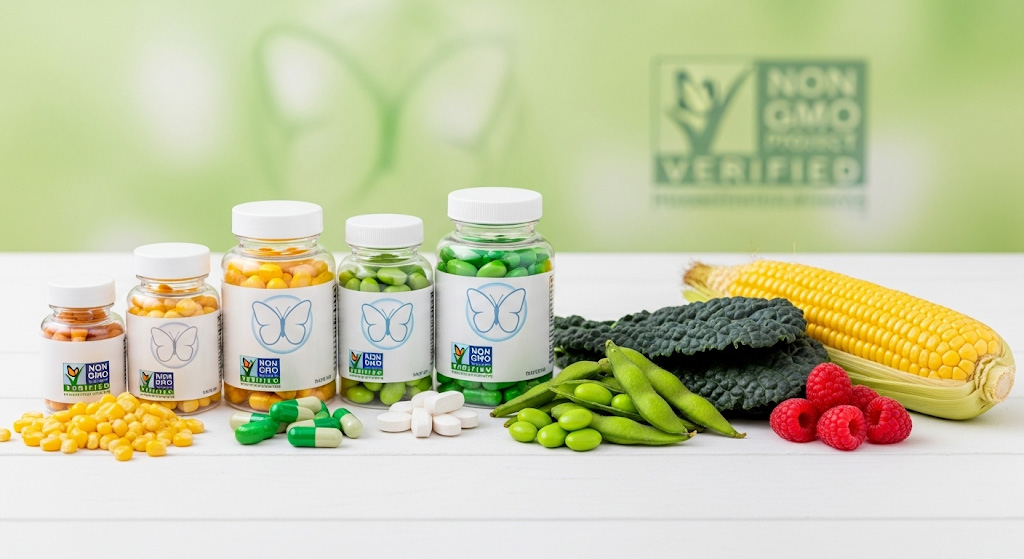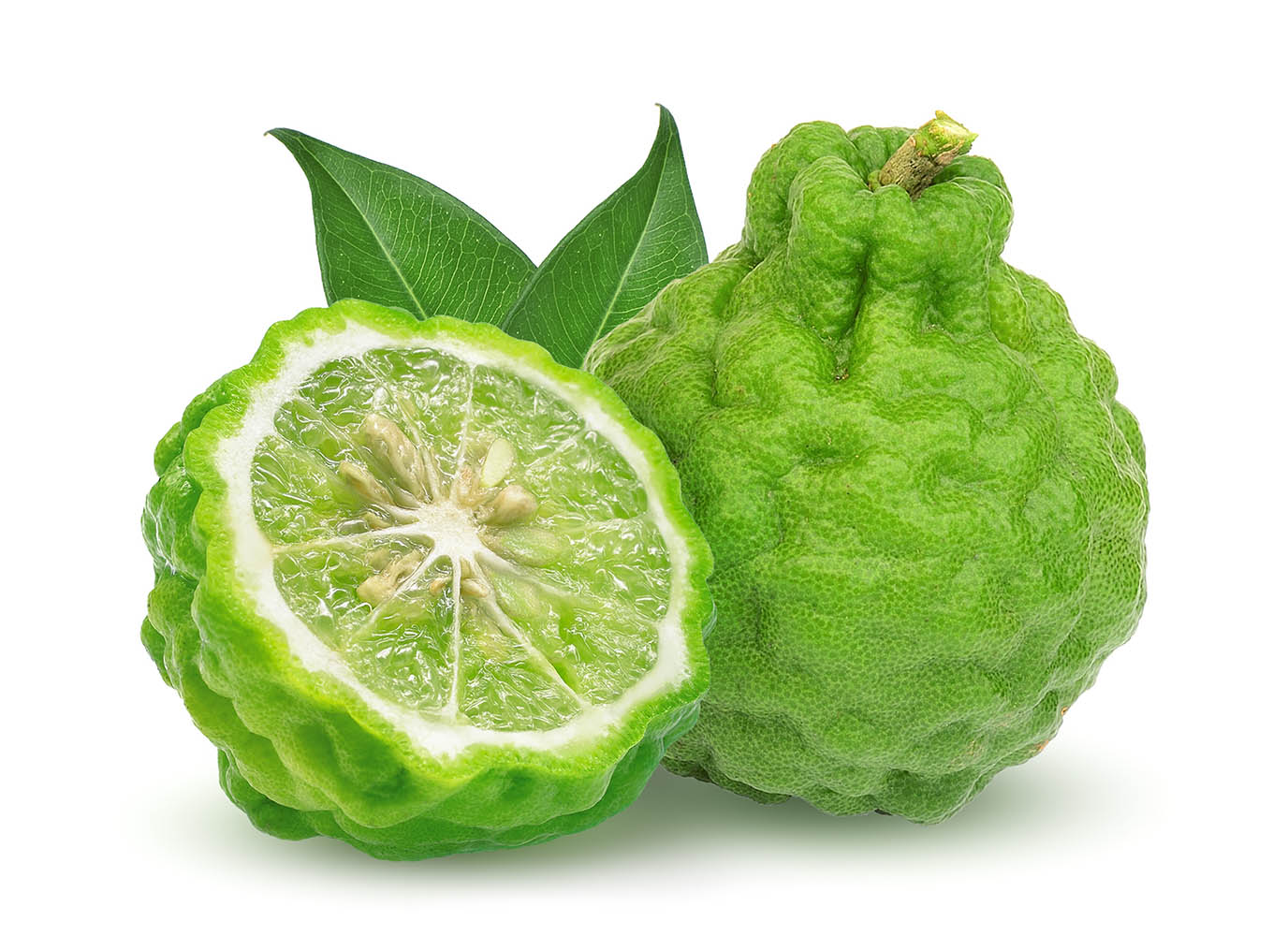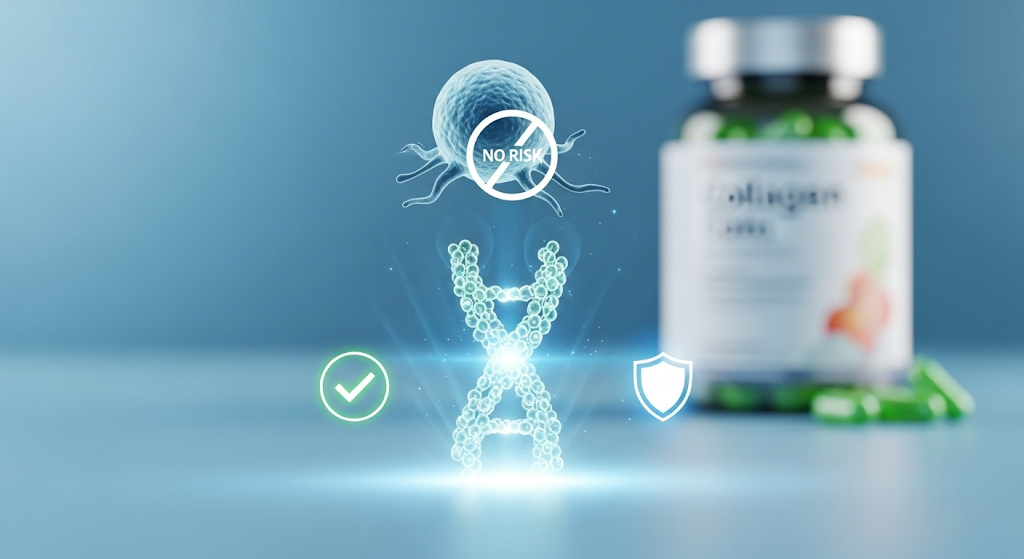For health-conscious individuals and discerning consumers alike, the integrity and purity of what we choose to nourish our bodies with have become paramount considerations. Within the expansive market of dietary supplements, the designation of Non-GMO (Genetically Modified Organism) has emerged as a powerful hallmark of quality and consumer trust. But beyond simply being a label, what fundamentally positions non-GMO supplements as a truly smart, affirmative, and conscientious choice for your health? The compelling answer lies in their adherence to natural integrity, a commitment to reducing chemical exposure, fostering transparency in sourcing, and supporting more sustainable agricultural ecosystems.

Understanding Genetic Modification: A Deeper Look
Before fully appreciating the merits of non-GMO supplements, it's crucial to grasp the science and implications of GMOs themselves. A Genetically Modified Organism is a living entity – be it a plant, animal, or microorganism – whose genetic material (DNA) has been deliberately altered in a laboratory using advanced biotechnology, often referred to as genetic engineering or gene editing (e.g., CRISPR-Cas9). Unlike traditional breeding, which involves selective propagation over generations, genetic engineering allows for the precise insertion of genes from unrelated species or the targeted modification of existing genes to achieve specific, novel traits within a single generation.
The primary objectives behind creating GMO crops are often pragmatic, aiming to address agricultural challenges and enhance food production. Common genetically engineered traits include:
-
Herbicide Tolerance (HT): This is the most prevalent trait, making crops resistant to specific broad-spectrum herbicides, such as glyphosate. This allows farmers to spray fields with these chemicals to control weeds without harming the crop itself, simplifying weed management. Major HT crops include soybeans, corn, cotton, canola, and sugar beets.
-
Insect Resistance (IR): These crops are engineered to produce their own insecticides. For instance, many corn and cotton varieties contain genes from the bacterium Bacillus thuringiensis (Bt), enabling them to produce Bt toxins that are lethal to certain insect pests upon ingestion.
-
Disease Resistance: Some crops are modified to resist specific viral or bacterial diseases, such as the Hawaiian papaya modified to resist Papaya Ringspot Virus.
-
Enhanced Nutritional Profiles: While less common in commercialized crops, some GMOs are designed to boost nutrient content, like "Golden Rice," engineered to produce beta-carotene (a precursor to Vitamin A).
Globally, the adoption of GMO crops varies significantly. Countries like the United States, Brazil, Argentina, Canada, and India are major cultivators of GMOs, while the European Union maintains a much stricter regulatory stance, with limited GMO cultivation and mandatory labeling. This disparity underscores the ongoing international debate surrounding their use.
The Compelling Benefits: Why Non-GMO Supplements Are a Foundational Choice
Choosing non-GMO supplements isn't merely a trend; it's a decision rooted in multiple, interconnected benefits that resonate with a holistic approach to health and responsible consumption. This choice offers a clear and resounding affirmation of its goodness:
-
Unparalleled Transparency and Empowered Informed Choice: At its very core, a non-GMO label stands as a beacon of transparency. It provides an explicit, verifiable assurance that the raw ingredients and subsequent processing of your supplement have not involved genetic modification. In an increasingly complex global supply chain, where ingredient origins can be opaque, this commitment offers invaluable peace of mind. It signifies that the manufacturer has actively chosen to source ingredients that are as close to their unaltered, natural state as possible. This empowers you, the consumer, to make genuinely informed decisions that align with your personal health philosophy and ethical considerations, fostering a deeper understanding of what you are putting into your body. This dedication to transparent sourcing elevates a brand beyond mere claims, demonstrating a tangible commitment to ingredient purity.
-
Significantly Minimizing Exposure to Agricultural Chemical Residues: One of the most potent arguments for non-GMO supplements lies in their direct link to reducing exposure to certain agricultural chemicals. A primary purpose of genetically modifying crops is to enable them to withstand massive applications of specific herbicides, particularly glyphosate, the active ingredient in products like Roundup. Farmers growing these "Roundup Ready" crops can spray fields extensively to kill weeds without harming their cash crop. By choosing non-GMO ingredients, you actively select materials from crops that are less likely to have been subjected to such widespread spraying.
-
Glyphosate Concerns: While regulatory agencies like the EPA maintain that glyphosate, when used as directed, is safe, the International Agency for Research on Cancer (IARC), a branch of the World Health Organization, classified it as "probably carcinogenic to humans" (Group 2A) in 2015. Concerns also exist about glyphosate's potential to disrupt the gut microbiome and its widespread presence as a residue, even when used as a pre-harvest desiccant. Opting for non-GMO helps reduce the likelihood of these specific chemical residues in your supplements.
-
Bt Toxins in Crops: Similarly, Bt (Bacillus thuringiensis) crops produce insecticidal proteins within their cells. While generally considered safe for human consumption as they target specific insect gut receptors, some consumer concern exists about the potential long-term effects of ingesting these internally produced insecticides and their possible impact on the human gut microbiome, a critical area of ongoing research. Non-GMO choices avoid these embedded toxins.
-
Co-Formulants and "Inert" Ingredients: Pesticide formulations often include "inert" ingredients or co-formulants that can enhance the pesticide's toxicity or have toxic properties themselves. By reducing reliance on crops designed for heavy pesticide spraying, non-GMO choices indirectly help minimize exposure to this broader chemical cocktail effect.
-
-
Upholding Natural Integrity and Safeguarding Biodiversity: Beyond simply avoiding genetic modification, the choice for non-GMO reflects a deeper philosophical commitment to the natural integrity of our food supply. It champions the idea of consuming plants and ingredients that retain their inherent biological structure and composition as bestowed by nature and refined through traditional, non-engineered cultivation. The very process of genetic modification, involving gene insertion from different species, is seen by many as fundamentally altering this natural blueprint.
-
Biodiversity and Seed Control: The prevalence of patented GMO seeds raises significant concerns about biodiversity. Farmers who grow GMO crops are often restricted from saving seeds, leading to a loss of diverse, traditional seed varieties adapted to local conditions. Supporting non-GMO alternatives helps to preserve this vital genetic diversity in agriculture, fostering resilience against pests and diseases without reliance on proprietary technology.
-
Risk of Gene Flow: Environmental concerns also highlight the risk of gene flow, where genetically modified pollen can spread to conventional or organic crops, leading to unintended contamination. Choosing non-GMO products reduces the demand for crops that carry this risk, helping to protect the integrity of conventional and organic farmlands.
-
-
Proactive Stance Against Unknown Long-Term Health Effects: The debate surrounding the long-term health effects of consuming GMOs is complex and continues to evolve. While major regulatory bodies like the FDA and organizations like the WHO generally conclude that currently available GMOs are safe to eat, their assessments are based on existing data, predominantly short-to-medium term studies, and focus on the safety of the genetically altered trait itself, not necessarily the entire plant's long-term biological impact.
-
Challenges of Long-Term Studies: Designing comprehensive, decades-long studies on GMO consumption in humans is incredibly challenging due to diet variability, lifestyle factors, and the sheer timeframe required.
-
Emerging Research Areas: Concerns persist about potential subtle effects on the human gut microbiome, the theoretical risk of creating new allergens through foreign protein expression, or other unforeseen metabolic consequences that might only manifest over many years or generations. By opting for non-GMO supplements, you are embracing a precautionary principle, choosing to actively minimize your exposure to these potential unknowns until more extensive, independent, and definitive long-term scientific data becomes available. This thoughtful approach offers an added layer of peace of mind.
-
-
Championing Sustainable and Regenerative Agricultural Practices: The decision to choose non-GMO ingredients often extends beyond personal health, influencing the broader agricultural landscape and promoting more sustainable practices. Non-GMO cultivation frequently aligns with the core tenets of sustainable farming:
-
Synergy with Organic Farming: It's important to note that all certified organic products are inherently non-GMO. Organic standards explicitly prohibit the use of GMOs. By choosing non-GMO, you often indirectly support the principles of organic agriculture, which prioritize soil health, biodiversity, natural pest control (e.g., beneficial insects, crop rotation), and prohibit synthetic pesticides, herbicides, and fertilizers.
-
Reduced Chemical Footprint: A lower reliance on herbicide-tolerant crops means less widespread application of specific chemicals, which can benefit soil microbiology, water quality, and surrounding ecosystems.
-
Farmer Autonomy: Supporting non-GMO varieties can empower farmers by allowing them to save and replant seeds, fostering greater autonomy and reducing dependence on patented seed varieties owned by large corporations. This contributes to a more diverse and resilient agricultural system.
-
-
Building Unwavering Trust and Enhancing Brand Reputation: For supplement manufacturers, achieving and maintaining Non-GMO Project Verified status is a rigorous and significant commitment. This involves:
-
Comprehensive Traceability: Tracking ingredients from the seed source through cultivation, harvest, processing, and manufacturing.
-
Rigorous Testing: Implementing stringent testing protocols for ingredients at various stages to detect potential GMO contamination.
-
Supply Chain Audits: Undergoing annual third-party audits to ensure compliance with strict non-GMO standards.
-
Ingredient Segregation: Maintaining strict separation of non-GMO ingredients from GMO counterparts throughout the entire supply chain.
This substantial investment by a brand signals a profound dedication to quality, transparency, and consumer health values that go beyond minimal regulatory requirements. It builds a powerful foundation of trust, reinforcing a reputation for integrity and making it easier for you to identify companies that truly align with your principles of purity and natural wellness.
-
What to Look for When Choosing Non-GMO Supplements: Your Actionable Checklist
When you are actively seeking non-GMO supplements, discerning information from marketing is key. Keep an eye out for these definitive indicators:
-
The Non-GMO Project Verified Seal: This iconic butterfly logo is the most widely recognized and stringent third-party verification for non-GMO status in North America. Its presence signifies that the product has undergone a thorough, independent verification process that screens all ingredients for GMO risk, from seed to shelf. It's a gold standard in the non-GMO movement.
-
Clear and Explicit Labeling: Reputable and transparent brands will not hide their non-GMO commitment. Look for clear statements such as "Non-GMO," "GMO-Free," or "Made with Non-GMO Ingredients" prominently displayed on the product label, often near the ingredients list or on the front of the packaging. Be wary of vague terms like "natural" which do not have a legal definition for GMO status.
-
Manufacturer Transparency and Information Accessibility: A brand truly committed to non-GMO sourcing will often provide extensive details on their website about their ingredient sourcing practices, quality control measures, and adherence to non-GMO principles. Look for FAQs, detailed "About Us" sections, or even specific pages dedicated to their non-GMO commitment, demonstrating a willingness to educate and reassure their customers.
The Affirmative Verdict: A Choice for Mindful, Empowered Wellness
So, are non-GMO supplements truly a good choice? The answer is an resounding and unqualified yes for consumers who deeply prioritize transparency, natural integrity, the reduction of chemical exposure in their diet, and a proactive, responsible approach to both personal health and environmental stewardship. While discussions about the direct nutritional equivalence between some GMO and non-GMO crops may continue, the decision to opt for non-GMO extends far beyond mere nutrient levels. It embodies a profound commitment to understanding the origins and processing of your nutritional support, actively supporting more sustainable and ethical agricultural practices, and making truly discerning choices for the holistic well-being of your body and the planet we inhabit. Ultimately, it is a choice for greater peace of mind, informed empowerment, and a clear alignment with a more natural, transparent, and conscientiously sourced path toward optimal wellness.
Information Sources:
-
Non-GMO Project: Detailed standards, verification process, and information on GMOs.
-
U.S. Food & Drug Administration (FDA): Information on their regulatory approach to genetically engineered foods.
-
World Health Organization (WHO): Provides a global perspective on genetically modified foods, addressing safety and public health aspects.
-
Environmental Protection Agency (EPA): Regulates pesticides, including those used on GMO crops, and provides risk assessments.
-
USDA National Organic Program (NOP): Details the standards for organic certification, which inherently prohibit GMOs.
-
International Agency for Research on Cancer (IARC) - World Health Organization: For information on glyphosate classification.





